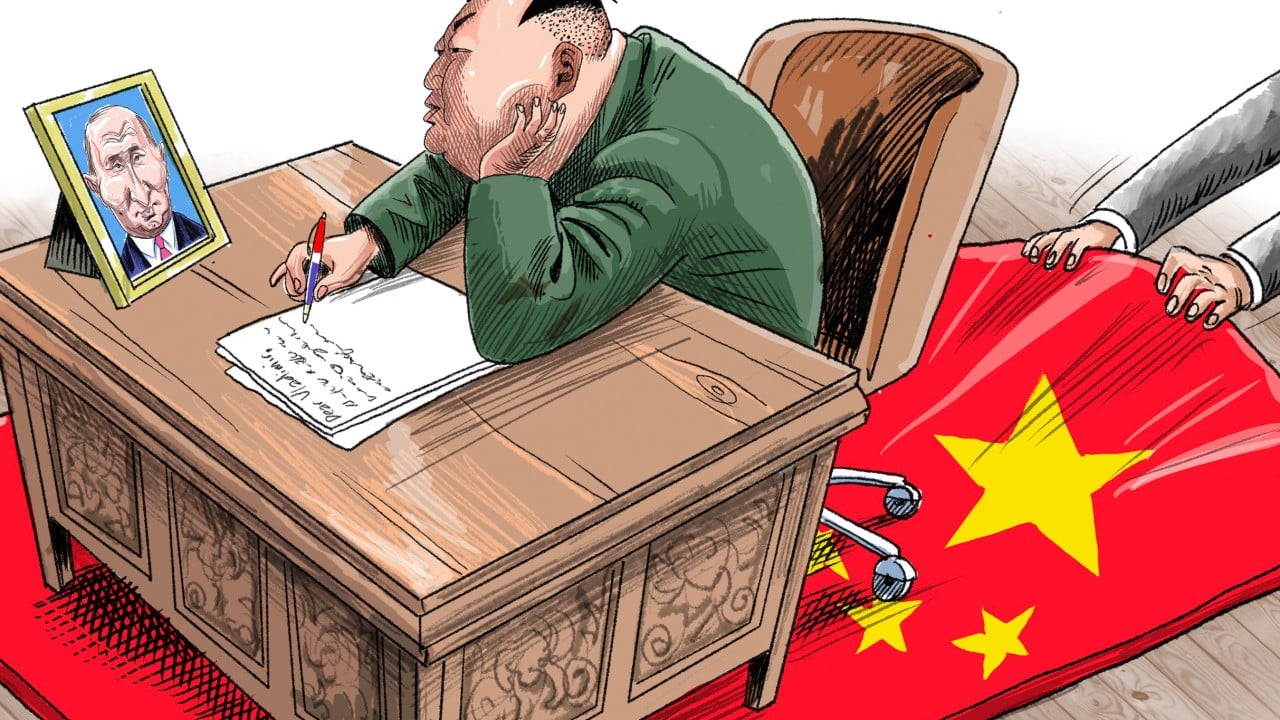Kim Jong-un, North Korea’s supreme leader, recently sent greetings to his counterparts in China and Russia, both Pyongyang’s big-brother states. Comparing the two is instructive.
Advertisement
On October 6, Kim sent “warm greetings” to Chinese President Xi Jinping on the 75th anniversary of bilateral ties and the founding of the People’s Republic of China. His language was formal: vigorous advances “along the road of socialism”; hoping “the Chinese people will achieve steady and fresh successes” under Communist Party leadership.
Two days later, Kim wrote to “my closest Comrade Vladimir Vladimirovich Putin”. The tone could hardly be more different. Offering “sincere and warm congratulations” on Putin’s birthday, an effusive Kim wrote: “You have made remarkable successes” – not merely “steady”. Recalling their meetings “with deep emotion”, Kim averred: “I believe you will as ever lead great Russia only to the road of victory and honour full of vigour”. “Pyongyang,” he added, “will always stand by Moscow.” He signed off: “To my closest comrade.”
Closest? That twice-repeated superlative must raise eyebrows in Beijing – and ruffle feathers. It’s also hard to square with key facts. The Kim-Putin love fest is recent, one-sided, narrow and shallow. It is a rare upwards twist in the roller coaster of Moscow-Pyongyang relations.
North Korea was a Soviet creation. Kim Il-sung, Kim Jong-un’s grandfather, was Stalin’s man. A minor guerilla under Chinese command, who retreated from Japanese forces into Siberia, he came home in a Red Army uniform. Soon he would claim to have liberated Korea on his own.
Advertisement
No puppet, he swiftly embroiled the Soviet Union and China in his reckless bid to reunify Korea by force. After that failed, he played off Moscow against Beijing for 40 years: taking money from both and advice from neither. North Korea was the comrade from hell: unreliable and ungrateful.

